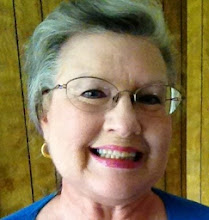
I had a revelation tonight while watching The Wild One, starring Marlon Brando. I had never actually seen this movie before, which is a classic and which set the tone for all the rebel biker movies that followed. I don’t think I’m alone in saying that no one—and I mean no one, with the possible exception of James Dean—ever portrayed the teenage rebel hero more poignantly than Brando, and generations of teens have knowingly (or unknowingly) modeled themselves after the character of Johnny Strabler that Brando portrays so well, right down to the rolled-up jeans.
My revelation was the realization of how much a viewer’s current circumstances affect the impact of a film. While I’ll admit I've spent some years of my life as a loner and a blonde in black leather, I’ve never been quite so far out on the fringe of society as Johnny and the members of the Black Racer Motorcycle Gang. Nowadays I’m pretty normal, though I do have an awesome black Miata MX-5 that I love to drive fast. I don’t think I’ve become an old fogey, but let’s just own up to the fact that my perspective has changed since I was 20 years old, and the spare tire that most concerns me now is not the one in my car!
While I might have identified more with Johnny in years past, I was horrified by the antics of the motorcycle gang while it terrorized the town. Even in my loner years I could never stomach punks such as the movie portrays, and I found myself becoming angrier as the movie progressed. I was angry at the townspeople, too. First, for being so weak and naïve, and then for the mob mentality that possessed them, ending in the death of an innocent bystander and Johnny being wrongfully accused of the murder. This script was so powerfully written and portrayed by the film’s cast that you could find yourself in just about any character’s skin at one point or another: Johnny, the jilted girlfriend, Kathie Bleeker (the girl he hopes to impress and the daughter of the local policeman), or any of the townspeople who were victimized by the gang, though I must say that I couldn’t identify with any of the other gang members. That, I’m certain, was the intent of the producer, director, and those who wrote the script (Stanley Kramer, Lazlo Benedek, and John Paxton and Ben Maddow).
It’s very nearly a storybook ending: law and order prevails, and the right things happen. Johnny even returns for a hopeful cup of coffee and leaves Kathie the trophy he’s carried throughout the movie—the significance of which is known only to them and the viewer, but he sees he’s lost the girl, so he rides away alone to seek the horizon, the perfect anti-hero. In times past, my sympathies might have gone with him, but now I share the sense of relief he leaves behind, knowing that Kathie’s dreams of a lover to rescue her have been dashed and replaced by the knowledge of just how unrealistic her dreams were. She’s a fortunate girl, really, because now she knows her life will be what she’s chosen, not what she’s settled for.
